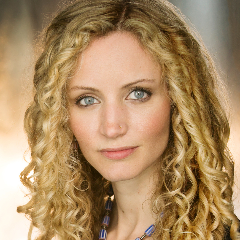You are not currently logged in. Please create an account or log in to view the full course.
Belief
- About
- Transcript
- Cite
Witchcraft and Witch-Trials, 1450-1750
In this course, Professor Suzannah Lipscomb (University of Roehampton) explores the history of witchcraft and witch-hunting in Europe and the United States in the period 1450-1750. In the first module, we think about belief in witches and witchcraft. After that, we think about how and why mere belief in witchcraft turned into actual prosecutions (and executions) from the later 15th century onwards, before turning in the third module to consider where accusations of witch-craft actually came from. Under what circumstances might one accuse someone of being a witch? In the fourth module, we think about the extent to which the witch-trials of the period 1450-1750 were 'gendered', while in the fifth we think about the practice of using torture to extract 'confessions' from those accused of witchcraft. Finally, in the sixth module, we think about why witch trials came to an end when they did, and the extent to which belief in witchcraft and witch-hunting remains a reality today.
Belief
In this module, we think about belief in witches, focusing in particular on: (i) belief in witches throughout history, from Ancient Greece (Theoris of Lemnos) to the present day (Melisandre in Game of Thrones); (ii) some popular misconceptions about witchcraft (e.g. people accused of witchcraft were 'ducked' on stools, etc.); (iii) the extent to which the persecution of witches in this period was driven by the church; (iv) the extent to which people in 16th-century Europe believed in the supernatural; and (v) the extent to which belief in witches was 'authorised' by the Bible (Exodus 22:18).
Cite this Lecture
APA style
Lipscomb, S. (2021, February 26). Witchcraft and Witch-Trials, 1450-1750 - Belief [Video]. MASSOLIT. https://massolit.io/courses/witchcraft-and-witch-trials-c-1450-1750
MLA style
Lipscomb, S. "Witchcraft and Witch-Trials, 1450-1750 – Belief." MASSOLIT, uploaded by MASSOLIT, 26 Feb 2021, https://massolit.io/courses/witchcraft-and-witch-trials-c-1450-1750

